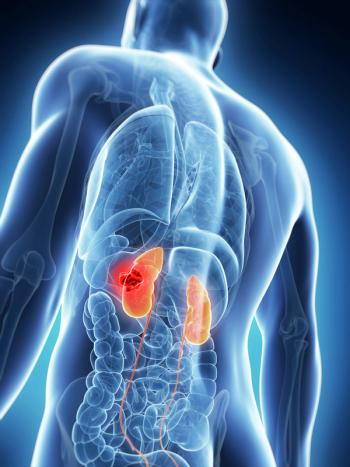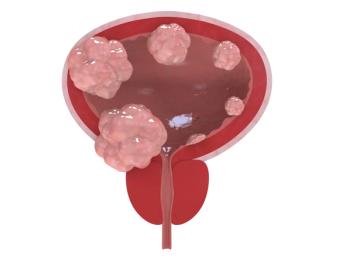
Data from DeLLphi-304 support the use of tarlatamab as a standard of care for all patients with second-line small cell lung cancer.

Your AI-Trained Oncology Knowledge Connection!


Data from DeLLphi-304 support the use of tarlatamab as a standard of care for all patients with second-line small cell lung cancer.

BNT111 combined with cemiplimab showed promising efficacy in treating PD-(L) PD-L1-relapsed/refractory melanoma, achieving an 18.1% objective response rate.

ITM-11 showed superior PFS and ORR compared with everolimus in patients with gastroenteropancreatic neuroendocrine tumors.

XTR008 achieved a higher ORR and improved QOL compared with high-dose octreotide long-acting repeatable in advanced GEP-NETs.

Tarlatamab plus chemo/IO showed a 71% objective response rate and promising safety for patients with ES-SCLC in the DeLLphi-303 study.

Giredestrant plus everolimus doubled the ORR and prolonged the DOR in patients with ER-positive, HER2-negative advanced breast cancer previously treated with a CDK4/6 inhibitor.

The AFSOS-Unicancer QUALIOR study did not meet its primary end point among patients with metastatic cancer.

Fruquintinib plus sintilimab significantly enhanced PFS in advanced RCC offering a promising second-line treatment option.

Pimicotinib shows promising long-term efficacy and safety for treating tenosynovial giant cell tumor, offering significant patient benefits in a recent trial.

Lenvatinib and everolimus significantly enhanced progression-free survival in metastatic clear cell RCC compared with cabozantinib, despite higher toxicity rates.

Osimertinib plus chemotherapy significantly improved overall survival in EGFR-mutated NSCLC, outperforming monotherapy across various prognostic factors.

Updated results from SunRISe-4 support further investigation of the gemcitabine intravesical system plus cetrelimab in MIBC.

Osimertinib and local consolidative therapy was a safe and effective strategy to extend disease control in patients with advanced EGFR-mutant NSCLC.

A numerically greater response rate with regorafenib/nivolumab may encourage a search for more non-chemotherapy combinations for gastric cancer.

Adjuvant ribociclib plus aromatase inhibitors significantly improved invasive disease-free survival in early breast cancer, as shown in the NATALEE trial.

Data from monarchE showed an OS benefit with abemaciclib-based therapy that was consistent across prespecified patient subgroups.

Meta: Safety outcomes, including the treatment-related AEs and AEs leading to treatment discontinuation, were consistent with or without lenvatinib in ESCC.

Data from POTOMAC support durvalumab plus BCG and induction and maintenance therapy as a new treatment option in BCG-naive, high-risk NMIBC.

New findings reveal that adding durvalumab to neoadjuvant chemotherapy does not enhance HRQOL in muscle-invasive bladder cancer patients.

Hosts Manojkumar Bupathi, MD, MS, and Benjamin Garmezy, MD, discuss presentations at ESMO 2025 that may impact bladder, kidney, and prostate cancer care.

Using multiparametric MRI for initial staging, then cystoscopic biopsy, improves bladder cancer-specific survival compared with transurethral resection of bladder tumor staging.

Alectinib shows promising long-term survival benefits over crizotinib for advanced ALK-positive NSCLC, highlighting significant clinical advancements.

Updated safety findings may support the ARASAFE regimen as a potential standard of care in metastatic hormone-sensitive prostate cancer.

Sevabertinib monotherapy was deemed tolerable across various cohorts of patients who were pretreated and treatment-naïve with HER2-mutant advanced NSCLC.

Results from the Beamion LUNG-1 study showed that first-line zongertinib yielded continued benefit for patients with HER2-mutated NSCLC.

Updated results from CheckMate 274 support adjuvant nivolumab as a standard of care for patients with high-risk muscle-invasive urothelial carcinoma.

The safety profile of the atezolizumab with Bacillus Calmette-Guérin in NMIBC was consistent with that of each individual agent.

Experts highlight anticipated sessions at the 2025 ESMO Congress, including those on the PSMAddition and EV-303 trials.

Anticipated data from the ESMO Congress 2025 may have implications for standards of care across prostate and bladder cancer groups.

Trials slated for presentation at the 2025 ESMO Congress may reveal practice-changing data across different breast and lung cancer populations.